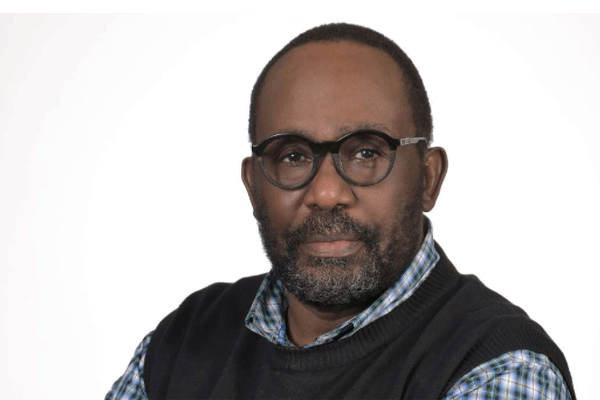Prime
Uganda can steal its way out of its mess

What you need to know:
- Uganda does not need to reinvent the wheel out of its current mess. It can just steal from Kibaki’s Kenya and Zimbabwe’s short blissful GNU period.
If you just arrived from Mars, you would think Uganda is coming apart at the seams. As the media tell it, May was easily the worst month for gun crime in Uganda in nearly 15 years.
Apart from robbery, a record number of police and Uganda People’s Defence Forces killed the people they were guarding, colleagues, or family, and then turned the guns on themselves.
With its canyon-size potholes, darkened streets, and one of the world’s dirtiest air to breathe, Kampala City is going to the dogs.
The outbreak of pillage of taxpayers’ money only gets worse, and gorging on state largesse by the rulers as schools and hospitals go to hell would make Roman empire-era debauchery look like saintliness.
The attack a few days ago in Somalia, which saw al-Shabaab extremists overrun a UPDF base and slaughter possibly up to 100 of our soldiers in the strategic approaches to Bulo Marer town, is only a symptom of what is broken back home.
There was a time when the heroics of the UPDF made such an attack unthinkable.
The same UPDF broke the back of Al-Shabaab in the Somali capital Mogadishu when they became the first African Union peacekeeping contingent to intervene in the strife-torn country in a daring move in 2007.
The political divisions and repression have gotten so extreme that even female Parliamentarians protesting abuses by security forces are bundled about like sacks of potatoes.
Despite that grim picture, the present crisis can be the seed that produces great things for the country. We only have to look to Kenya and Zimbabwe.
Today, Kenya remains East Africa’s largest economy and Africa’s 6th largest. In 2014 it catapulted to Africa’s 9th largest economy. There was something remarkable about that 2014 feat.
For the period when the economic data was reviewed, Kenya was recovering through its worst post-independence crisis – the 2007/2008 post-election violence (PEV), in which nearly 1,500 people were killed and 350,000 displaced.
Dr Carlos Lopes, the excellent Bissau-Guinean economist who was then Executive Secretary of the UN’s Economic Commission for Africa, noted that in addition to wide-ranging social disruption, the few weeks of the PEV cost the Kenya economy over $3.6 billion!
Yet, within the next five years, Mwai Kibaki’s government pulled one of the most spectacular infrastructure investments on the continent, put the economy on steroids, oversaw the making of one of Africa’s most progressive constitutions, and got the country into the top 10.
Now to Zimbabwe. Once, it was a great African country with its highest literary rates and a revolutionary inspiration.
Then Robert Mugabe and his ruling ZANU-PF went rogue and landed the country with the highest inflation rates ever seen on Earth and its most worthless currency.
You needed to wheel a sack of currency notes to buy a loaf of bread if you could find it.
In 2008 despite unspeakable violence, Mugabe lost to Movement for Democratic Change (MDC) opposition leader Morgan Tsvangirai.
He refused to accept defeat, and a new vote was called. Mugabe unleashed even more violence, and Tsvangirai was left heavily bandaged and bedridden.
MDC decided it wasn’t worth putting their supporters through the brutality and pulled out. Mugabe declared himself the winner.
The economic crisis deepened, and the country was paralysed. Mugabe conceded, and a government of national unity (GNU) was formed with the MDC to save the country in February 2009.
MDC’s Tendai Mbiti, a thoughtful economist, was appointed Finance minister. The GNU lasted about two years before Mugabe blew it apart, but there was a near-miraculous economic recovery in those two years. To this day, Zimbabwe has yet to return to the economic positives it achieved then.
What was it about those two years of the GNU in Zimbabwe, and the post-PEV period in Kenya, that yielded such good results?
Four main things. In forming the GNU, Zimbabwe followed the Kenya example, which established a national unity government to take it out of the 2007-2008 crisis.
The GNUs created broad governments that reflected the national face of Kenya and Zimbabwe. Uganda can do the same thing.
The GNU period in both countries where a meritocracy (the best people, many centrists) was appointed to the government, and they also ushered in eras of freedom and the lowest levels of repression.
And fourth, with competing political factions acting as checks against each other, the two countries saw some of their lowest levels of government corruption.
And, in Kenya’s case, Kibaki was a clever old Makerere-educated economist and “mukono gamu” with the public’s money, so he could endow that rare thing in Africa - significant budget surpluses.
The GNU period in Kenya also had the lowest crime levels in decades.
Uganda doesn’t need to reinvent the wheel out of its current mess. It can just steal from Kibaki’s Kenya and Zimbabwe’s short blissful GNU period.
Mr Charles Onyango-Obbo is a journalist,
writer and curator of the “Wall of Great Africans”. Twitter@cobbo3




